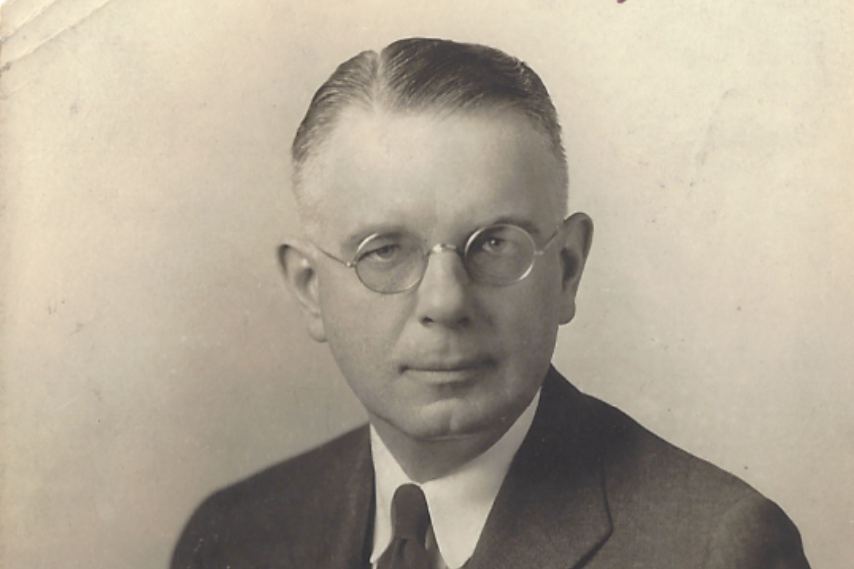The Reverend Russell Henry Stafford was not a fan of his own preaching. In a 1968 interview with Frederick Meek, Stafford reminisced about a church member telling him that his sermons were “perfectly terrible” and admitted to going across the street to Trinity to hear the sermon after ushering at Old South on Sunday mornings. Stafford replied: “I don’t blame you at all, Doctor–if there’s anybody whose voice I’d like to get away from, it’s that bird Stafford, and I hope you go right straight across the street and get some real religion at Trinity.”
Stafford faced the unique challenge of being the successor to the Reverend George Angier Gordon, who served as Old South’s Senior Pastor for 43 years. Gordon was a poetic preacher whose liberal and generous theology drew standing-only crowds on Sunday mornings. In an address to the congregation on October 28, 1932, Stafford referred to Gordon as a “spiritual genius” and humbly acknowledged that he did not hope to follow in Gordon’s footsteps as a preacher. Instead, he vowed to work on strengthening and building the community at Old South. Stafford made good on this promise and created the modern church governance, fellowship, and committees we still enjoy today.
A while back, I read a surprising sermon that led me to believe that Stafford was too hard on himself as a preacher. On Sunday, June 21, 1931, the Reverend Stafford preached a sermon titled “The All-Inclusive Hope.” In this sermon, Stafford notes that modern preachers had stopped speaking of hell and that this evolution was welcome to him. Stafford asserts that the notion that someone would be doomed to eternal punishment suggests that God seeks revenge for human wrongdoing rather than trying to correct it. The desire for eternal revenge is not consistent with the God of Jesus, who was a God of Love. God, said Stafford, “is not a fiend who tortures, but a friend who helps, even the foulest and most debased.” Church involvement was not about avoiding hellfire but seeking an abundant life on earth. Clearly, Stafford was unafraid to engage with controversial and challenging subjects.
Just three years earlier, the New York Times featured a story on one of Stafford’s well-known contemporaries who happened to preach on the same subject. The January 23, 1928 article reported that the Reverend Harry Emerson Fosdick preached that the idea of hell as a “fiery pit” was an example of the “ephemeral side of Christianity.” Fosdick was the senior pastor at Riverside Church in New York City. A towering preacher, he became a leading spokesperson for the liberal wing of Christianity in the twentieth century. Stafford’s willingness to join Fosdick’s prophetic voice in proclaiming the non-existence of hell proved that, much like his predecessor, he could preach bravely.
References
- Meek, F. (1968). An Interview with Henry Russell Stafford. The Old South Church in Boston Archive.
- Stafford, R. H. (1931). The All-Inclusive Hope. The Old South Church in Boston Archive.
- Stafford, R. H. (1932). What Next: A Report and Forecast presented to the Old South Church in Boston. The Old South Church in Boston Archive.
- There is No Hell, Dr. Fosdick Asserts. (1928, January 23). The New York Times http://search.proquest.com
- Vescey, C. (undated). Harry Emerson Fosdick: Colgate’s most distinguished graduate, now unknown. Colgate University. https://200.colgate.edu/looking-back/people/harry-emerson-fosdick-colga…








